7 classic must-read polymer flood submissions
You need to know
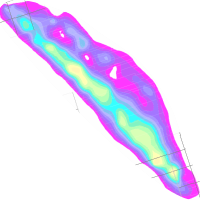 How do you get up to speed on polymer flooding quickly from a field implementation perspective?
How do you get up to speed on polymer flooding quickly from a field implementation perspective?
Taking a class is fine. Skimming a text book is great. Reading a few technical papers is okay. Attending a lecture might help.
But if you want a real look at polymer field implementations you need to use AppIntel AI to find polymer flood submissions by industry. Each submission is ground truthed to actual UWIs. Each submission is adjudicated by a picky regulator.
1. Primer
One operator started a new polymer flood. In his justification, he discussed the earliest polymer floods in the province. He describes polymer flooding with primer-like detail.
You can see his submission documents in moments from our self serve portal.
Get details of this cool tech Subscribers get them for freeIf you are operating or planning a polymer flood, you must to read this and 6 other classic polymer submissions from AppIntel AI.
?subject=Help me get up to speed on polymer flooding&body=Help me get up to speed on polymer flooding%0D%0A%0D%0AMy Name:__________ %0D%0AMy Phone Number:__________ %0D%0A%0D%0A(Or call Proven Sales at 403-803-2500.)">Contact Proven for support. We have all the details from all the installations.
 2. Polymer diverter trial
2. Polymer diverter trial
One operator tried a new type of polymer to divert water in a water flooded reservoir. The polymer is named nanospheres. He belived that the nanospheres will set up in water-frequented pathways. If successful, this polymer will force injection water into unswept portions of the reservoir.
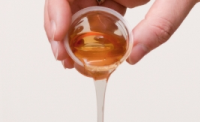 3. High salinity polymer polymer flood
3. High salinity polymer polymer flood
The AER recently approved an expansion of a successful ASP flood. All the details of the lab studies and field pilot are included in the submission. They predict an additional recovery range of 10-13%. Sensitivity of polymer to brine water hardness and reservoir temperature was examined. They propose a mixture of vertical and horizontal polymer injector wells.
 4. Polymer doubles recovery
4. Polymer doubles recovery
In his submission documents, he shows a recent polymer flood where he is already reducing GOR and water cut. He's sure he can improve recovery by at least double using this injection fluid. His oil is 14 degree API.
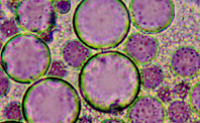 5. Injecting polymer without plugging off
5. Injecting polymer without plugging off
A common problem with polymer and related ASP flooding technology is the injector plugging. One operator believes they have found the solution. They believe they have found a particular polymer chemistry that won't form a gel structure until the differential pressure is decreased to a transition pressure.
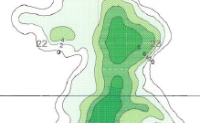 6. Polymer injection pattern
6. Polymer injection pattern
One operator is quadrupling an ASP flood. His submission contains his work on injectant composition and his injection pattern.
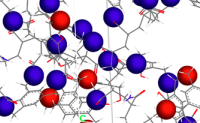 7. Life after polymer
7. Life after polymer
One operator gave up on a polymer flood and returned it to water injection. Although their pilot technically worked it didn't meet their corporate hurdles. You can read all about the analysis of the flood in these submission documents.
?subject=I want a cheap and cheery one day trial of AppIntel&body=Sign me up for a one day AppIntel trial so I can check out polymer schemes. %0D%0A%0D%0AMy Name:___%0D%0AMy Phone Number:____%0D%0A%0D%0APricing: www.appintel.info/short-term-search/%0D%0A%0D%0A(Or call AppIntel Sales at 403-803-2500.)">Contact us now to try it out Search for all the polymer schemes.
Tags: Polymer, Heavy Oil
 Granger Low 15 Feb 2017
Granger Low 15 Feb 2017

Supercharge 2026 with exploration AI skills that matter
Found a corner shot in thermal scheme

Don't blow the lid
Fracking into a neighboring well causes a blowout
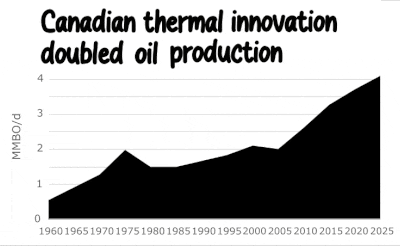
Continuing Canadian thermal innovation doubled oil production
Experimental Propane Solvent co-injection in thermal
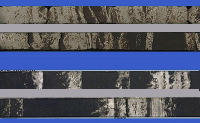
Shale in SAGD
How shale much is too much shale? Ask AppIntel AI.

Measuring the rate of oil and gas technology growth
Energy transition inside the oil industry
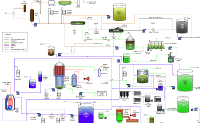
The rise of water recycle
Join or perish

AppIntel AI shows SAGD type logs
Check out the picks and cap rock

AppIntel AI hit alerts
Ignite your insight

Blowdown and NCG injection
SIRs often reveal more than submissions

AppIntel AI contains much more than technical papers
More current. More coverage. More detail. More trusted.

AI provides access to regional seismic mapping
Find it with AppIntel AI

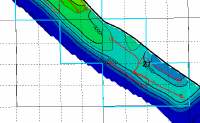


 Calgary, Alberta, Canada
Calgary, Alberta, Canada
 Share
Share